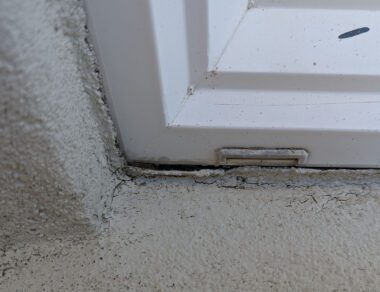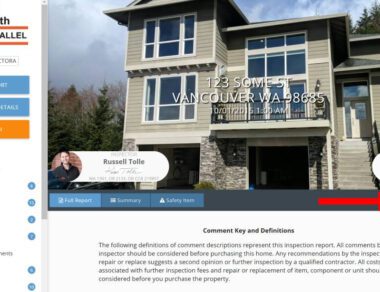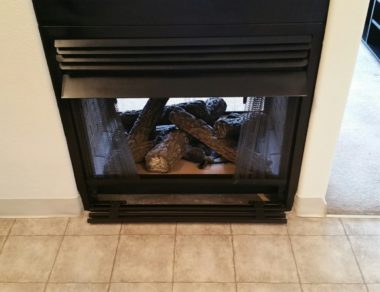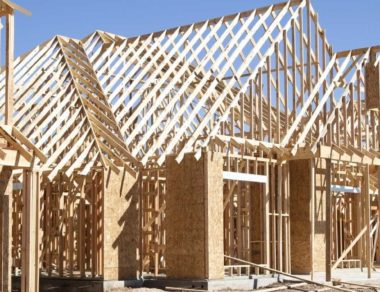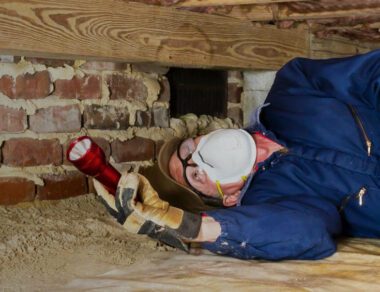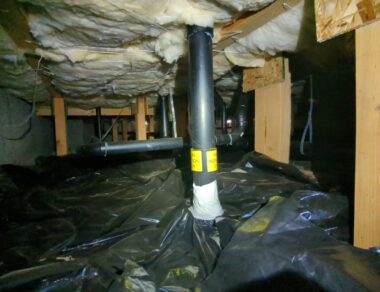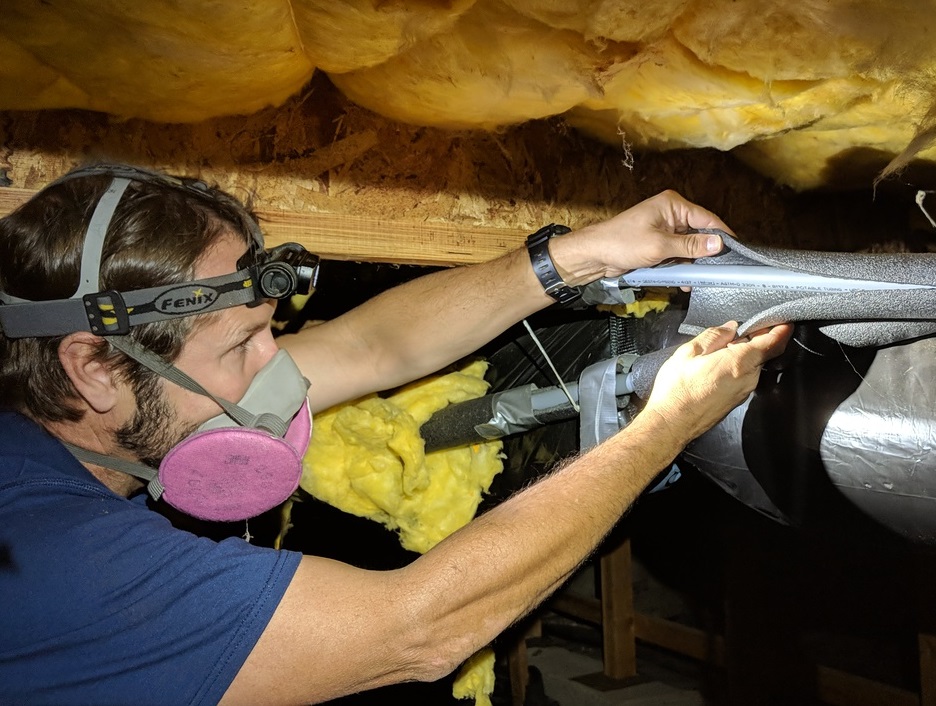
Buying a home is an exciting and often life-changing experience–there’s always an emotional thrill that comes with the thought of stepping into your dream home. But before the keys are in your hand, there are some essential steps you need to take to ensure that the property you’re considering is as good as it seems. One way of doing this is getting a professional home inspection–but how should home buyers prepare for a home inspection?
A professional home inspection helps you uncover potential problems, ensuring you’re making informed financial decisions. A thorough, well-conducted home inspection can either solidify your decision to buy a home or provide insight into necessary repairs or adjustments. Let’s dive into how to prepare for a home inspection and what to expect during this important part of the home-buying process–especially for the first-time home buyer.
How to Prepare for a Home Inspection
Preparing for a home inspection involves more than just scheduling one. It’s crucial to be ready so you can understand the findings and make educated decisions about your next steps. Here’s how you can prepare:
1. Do Your Research:
Before the home inspection, it’s wise to do some homework toward selecting the home inspection company you want to use. You can call and speak with various inspection companies, read reviews online, and ask your realtor professional if they have any inspectors they feel would do a great inspection for you.
2. Understand the Typical Home Inspection Report:
A home inspection report for buyers will include evaluations of the home’s structural integrity, electrical system, plumbing, HVAC system, roof, attic, crawlspace, and much more. This will We recommend visiting multiple inspection companies’ websites and downloading sample reports to familiarize yourself with what to expect.
Report formats will vary by inspection company, but in general will all contain the same common systems and components like roof, exterior, etc. Familiarizing yourself with sample reports and formats will prepare you somewhat for when you receive your home inspection report.
3. Prepare Questions:
As a home buyer, you may have questions about specific areas or potential concerns. This is your chance to get expert feedback from a qualified home inspector. For example, if you’re buying an older home, it’s a good idea to ask about the condition of the electrical wiring or plumbing.
 4. Attend The Inspection:
4. Attend The Inspection:
While not always possible to attend the home inspection, if possible, you should. This is a good opportunity to learn a lot about the home in a very short time. We recommend attending the inspection, spending time in the home familiarizing yourself with the home, soaking in the vibe, picturing where the Christmas tree would go, and being prepared to engage and participate at the end of the home inspection.
Assuming you are there at the end of the inspection, most inspectors (45th Parallel always does) will provide a quick verbal summary as a courtesy and answer any questions you may have. While not officially a part of the home inspection you contracted for, it is an excellent way to help supplement the official written home inspection report by giving you some context about how your home compares with typical findings in other homes.
5. Bring A Curious Attitude:
Is there anything you don’t understand about the inspection process, the findings in the written report, or anything at all? Then please, please, ask. We want to help! As a home inspection company that deeply cares about every one of our customers, it is always frustrating to have an upset customer that has moved into a home, and not fully read and understood the home inspection report.
So, please engage, be curious, ask questions if you have them, and let us help you as much as we possibly can. We want you to get the very most out of the home inspection process.
What Areas Does a Home Inspection Cover?
A home inspection is a comprehensive review of a property. Below is an overview of the general areas a home inspection will cover, as well as what to expect in each category.
- Structural: The structural integrity of a home is one of the most important aspects of the inspection. The inspector will check the foundation, walls, ceilings, and floors for signs of instability or potential problems. If there are issues, it could indicate larger problems, such as settling unseen damage, which could be costly to repair. Serious structural issues may even affect whether mortgage lenders are willing to approve your loan or whether it is even worth pursuing the home purchase.
- Electrical: Electrical systems in homes, especially older ones, are another critical area for inspection. A professional home inspector will look at the visible wiring, electrical panels, circuit breakers, receptacles, and light fixtures to check for issues needing repair or having safety hazards. Faulty electrical systems are not only a fire hazard but can also need more expensive repairs.
- Plumbing: Plumbing is a major concern for many home buyers, particularly if the home has older pipes. The inspector will check the water pressure, run all plumbing fixtures, look for drainage issues, and for any signs of leaks, damage, or known problematic plumbing like Polyburylene. Problems like water damage or old, corroded pipes could affect the sale of the home, as they may lead to costly repairs down the road. Old galvanized water lines, even if still working, are likely near the end of their service life and will need replacement at some point.
- HVAC: Heating, Ventilation, and Air Conditioning (HVAC) systems are essential for the comfort of your future home. The inspector will assess the age, condition, and functionality of these systems, checking both the heating and if existing, cooling system. If the system is outdated or in poor condition, you may need to factor in the cost of repairs or replacement.
- Roof: The roof is another critical component of any home inspection. The inspector will look for signs of wear and tear, missing or damaged shingles, and any indications of leaks or water damage. A damaged or leaking roof could lead to significant issues, like mold growth or structural damage, which could affect your decision to buy the home or the price you’re willing to offer.
- Crawlspace/Attic: A home’s crawlspace and attic can reveal a lot about its overall condition. The inspector will look for leaks, damage, insulation issues, ductwork issues, and structural problems in the crawlspace. Since this area is often hidden, problems here can go unnoticed by the untrained eye. Issues found in the crawlspace or attic can affect the sale, particularly if the inspector finds extensive water damage or structural issues.
Attending the Home Inspection
If possible, you should attend the home inspection. This allows you to see firsthand any potential problems that the inspector finds and ask questions on the spot. A professional home inspection is thorough, and being there helps you gain a better understanding of the property’s condition.
After a 45th Parallel home inspection is complete, you’ll receive a detailed, written, inspection report–including many photos that outline the inspector’s findings. It’s essential to read through this report fully and carefully, and ask follow-up questions if anything is unclear. The report will help guide your next steps, whether that involves negotiating repairs with the seller or deciding whether to move forward with the purchase.
Negotiating Repairs or Price Reductions
One of the main reasons to have a home inspection is to identify issues that may require repairs or any big upcoming expenses. Once you have the inspection report in hand, you may want to ask the seller to take care of certain repairs before closing or offer a price reduction if you’re willing to handle coordinating the repairs yourself.
For example, if the inspector finds water damage, outdated electrical wiring, or roof issues, these are potential problems you can negotiate on. Your real estate agent can help guide you through this process, but it’s important to remember that the home inspector won’t give advice on whether you should buy the home. That’s a decision only you can make
FAQs About How Buyers Should Prepare for a Home Inspection
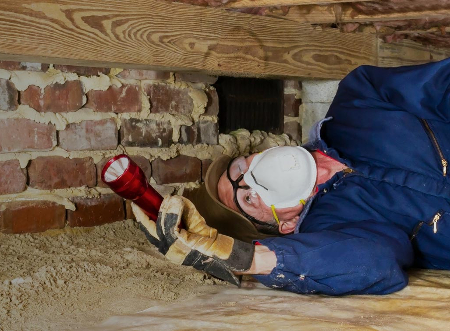 What is a home inspection?
What is a home inspection?
A home inspection is a visual and non-invasive inspection of a home’s condition and its major systems in an attempt to identify ‘material defects’. Material defects are the larger defects in a home that adversely affect the valuation of the home or the safety of the inhabitants. The home inspection covers things such as the roof, plumbing, electrical system, attic, crawlspace, HVAC, and structural components. The goal is to find any larger defects in the home in an attempt to prevent any future surprises as much as possible. Our goal is not to identify every defect in a home. That is not the goal, nor realistic, given the very limited time we have to inspect the home.
What is a home inspection contingency?
A sales contingency period is a clause in a real estate sales contract that allows the buyer a certain amount of time to perform due diligence on the home, to back out or renegotiate based on the findings of the home inspection, and to perform other due diligence such as having contractors estimate the cost of any necessary repairs.
Appraisals also happen during the sales contingency period. A lot happens in this time. The sales contingency period in our area is 10 calendar days in Washington and 10 business days in Oregon.
Why should I attend the home inspection?
Attending the inspection allows you to see the potential issues firsthand, ask the inspector questions, and better understand the home’s condition. It’s a great opportunity to soak in the feel of the home and picture yourself living there, and also to learn a lot about the home in a very short amount of time. We advise you to take advantage of this available time and use it wisely.
How long does a home inspection take?
The length of the inspection depends on the size and condition of the home, but typically it takes 2-4 hours.
What happens if the inspector finds issues?
Without a doubt, 100% of the time, the inspector finds issues. Every single house, old or new has issues recommended for repair. In many thousands of homes, we have never found a perfect home yet. You can ask the seller to make repairs, negotiate a lower price, or ask for nothing, it’s up to you. Your real estate agent will help you navigate these discussions.
Are older homes more likely to have issues?
Yep! For sure! Older homes have older systems and components and have more wear and tear that can result in more necessary repairs. Issues like old wiring, plumbing, or roof damage are super common in older properties. Just because things are older though, does not always mean they are defective. A lot depends on how well the home was maintained by the previous owners. Many things are just a cycle of life also. Everything has a lifespan, such as roofs, ovens, decks, water piping, and electrical panels.
What should I do if the home has a septic tank?
If the home has a septic tank, you’ll want to ensure that you schedule a septic company to perform an evaluation during the sales contingency period. The evaluation should include the condition of the tanks(s) and drain field, whether it needs pumping or not, and if there is any leaking of the tanks. A faulty septic system can lead to costly repairs, so it’s important to have it checked out.
Ready for Your Home Inspection?
At 45th Parallel Home Inspection, we offer comprehensive home inspections to help you make informed decisions about your future home. In addition to our main home inspection service, we provide radon testing, sewer scopes, cladding inspections (EIFS, stucco, stone veneer), and re-inspections to ensure that any agreed-upon repairs have been made.
Contact us today to schedule your professional home inspection and get the peace of mind you need to move forward with confidence!
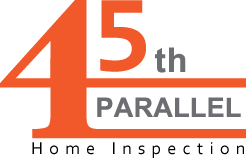
 4. Attend The Inspection:
4. Attend The Inspection:
